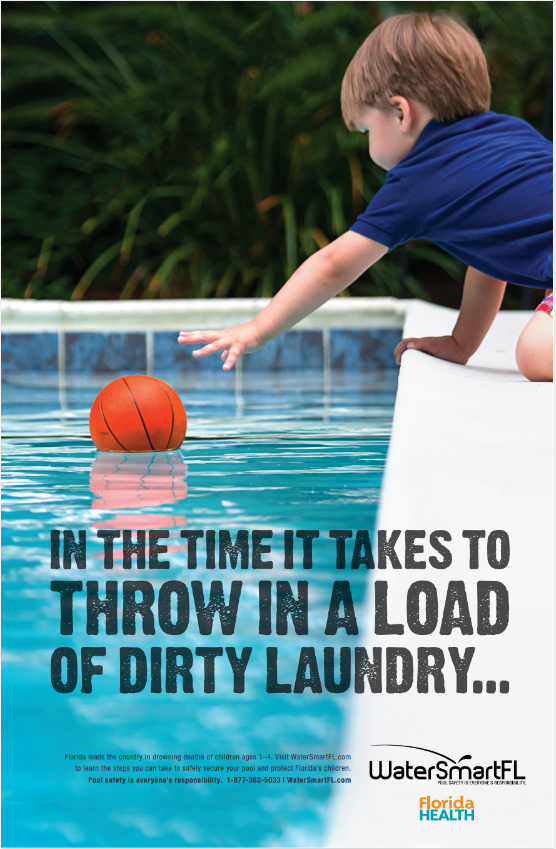SUPERVISION: Someone should always be actively watching children when they are in the pool. Drowning can happen in just a few minutes. Designate a “Water Watcher” to keep an eye on swimmers.
BARRIERS: A child should never be able to enter the pool area unaccompanied by an adult. Barriers physically block a child from the pool. Florida law requires barriers for home pools. Barriers include:
- Child-proof locks on all doors
- A pool fence with self-latching and self-closing gates
- Pool alarms
- Pool covers may also be used but ensure it is a professional cover fitted for your pool. A simple canvas covering can be a drowning hazard and entrap a child in the water.

How to Stay Safe While Swimming
Never go near the water without an adult.
While swimming can be fun, It’s important for young children to know that the fun can’t begin until a “Water Watcher” is present. Drowning can happen quickly and quietly, which is why actively watching your swimmer is a necessity. Even after the summer months, make sure your child knows never to go near the water alone, to always have a swimming partner and to only swim when a trusted adult is present.
Wear a lifejacket.
Life jackets should be worn at all times while in a boat, raft, inner tube, or on a dock. If a child is an inexperienced swimmer, life jackets should be utilized at all times while in the water. Life jackets should be properly fitted in order to keep your child’s head and face above water. Remember, life jackets only work when they are worn, so make sure your child gets in the routine of putting one on every time they get near the water.
Learn how to swim.
Swimming lessons have been shown to reduce drowning incidents, which is why the American Academy of Pediatrics recommends that children ages 4 and older learn to swim. Even if your child has taken swimming lessons, never assume that their risk of drowning has subsided. Always be cautious of pool floats or toys that could interfere with your child in the water. Learning how to swim should be a fun activity, promoting aquatic awareness and minimizing intimidation. To find swimming lessons in your area, contact your local YMCA, American Red Cross, American Heart Association, city facilities, or swim school.
If there is an emergency, call 9-1-1 or find an adult
Although a child may be utilizing all necessary precautions, sometimes water accidents do happen. Make sure your child knows to call for help or find an adult when trouble occurs. When watching a child swim, always make sure to have a phone nearby in order to call 911 if a dangerous situation arises. Stress the importance of staying away from pool drains and suction fittings in order to have a fun, safe swimming experience.